Find A Professional
More Items From Ergsy search
-
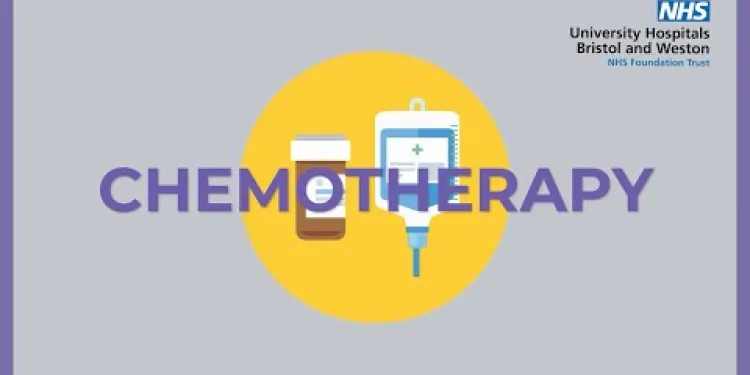
Chemotherapy
Relevance: 100%
-
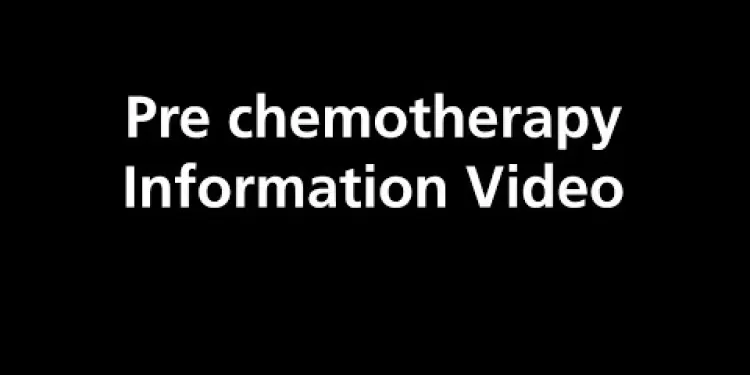
Pre chemotherapy Information Video
Relevance: 97%
-
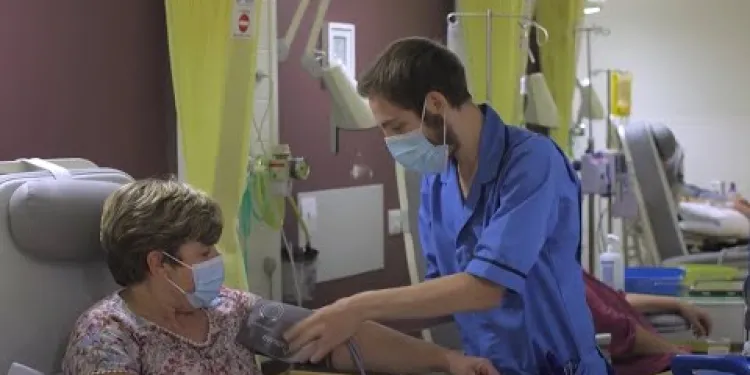
Chemotherapy - the patient journey
Relevance: 91%
-
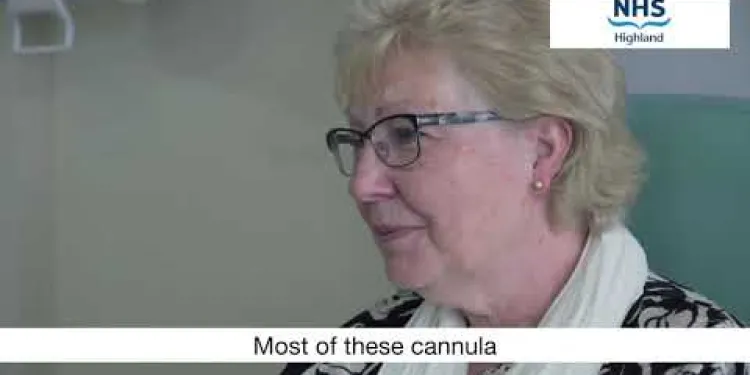
Introduction to Chemotherapy, NHS Highland
Relevance: 86%
-
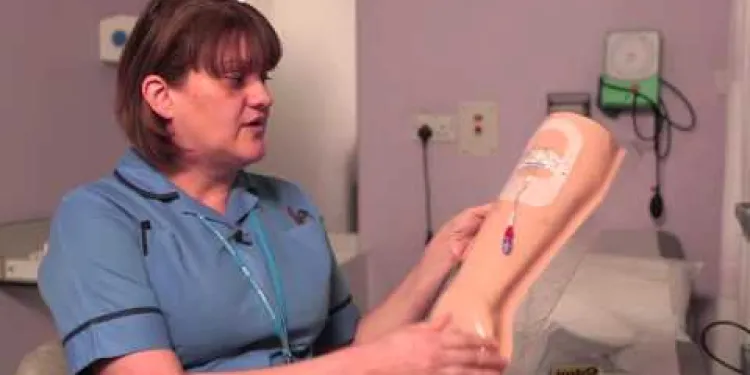
Chemotherapy - The Queen's Centre
Relevance: 79%
-
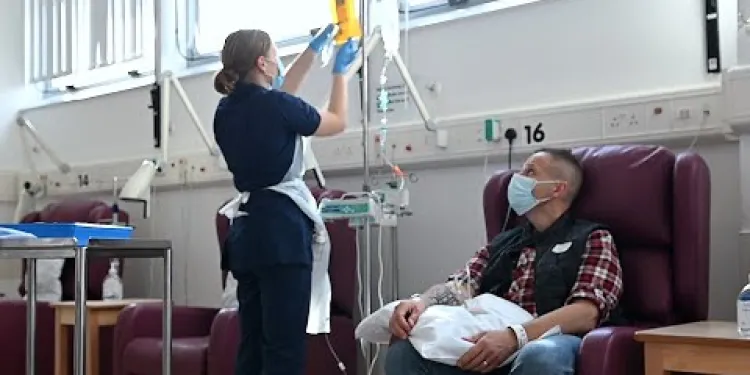
Having chemotherapy and other treatments in the Day Treatment Unit
Relevance: 63%
-
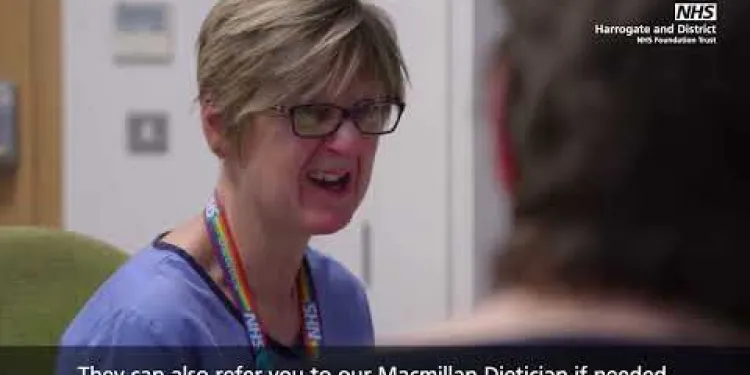
Information for all cancer patients receiving Chemotherapy or Targeted Therapy at HDFT.
Relevance: 35%
-
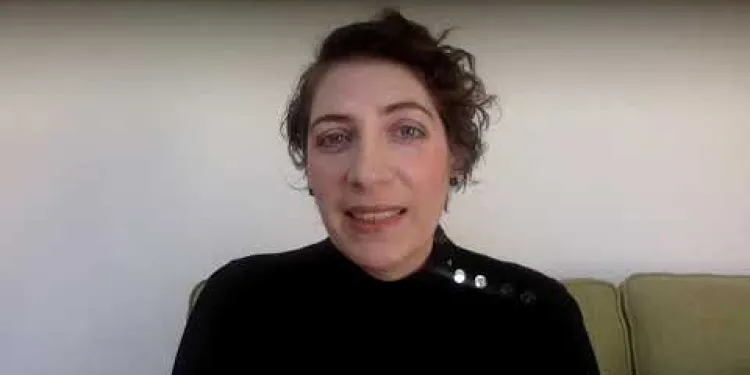
World Pancreatic Cancer Day - No Time to Wait
Relevance: 23%
-
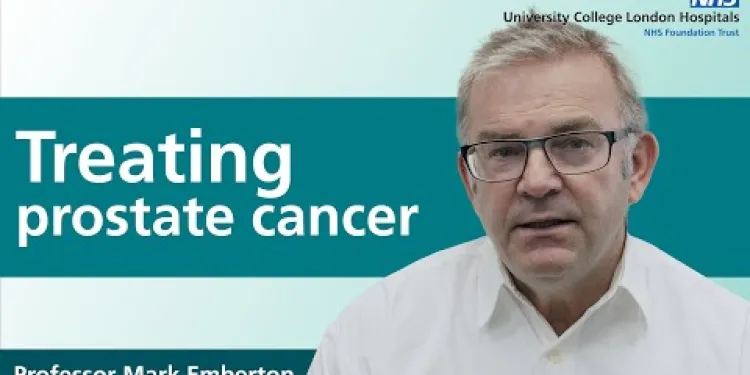
Treating prostate cancer
Relevance: 20%
-
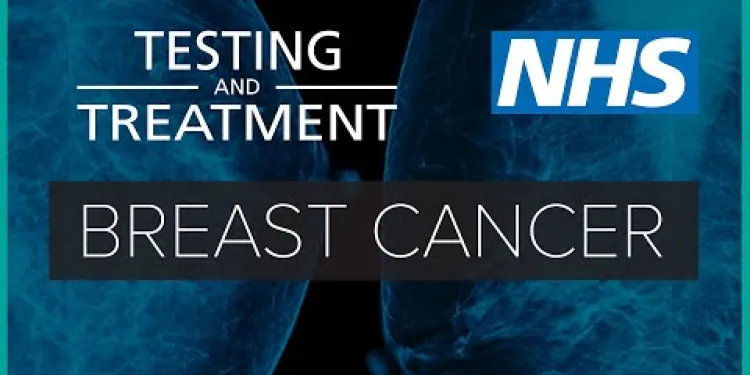
Breast cancer: testing and treatment | NHS
Relevance: 14%
-
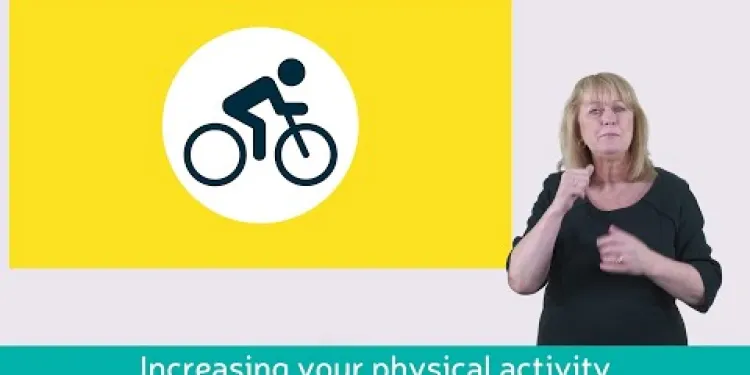
Learn about bowel cancer (British Sign Language version)
Relevance: 14%
-

An Interview With JC About His Leukemia And His Leukemia Treatment
Relevance: 12%
-
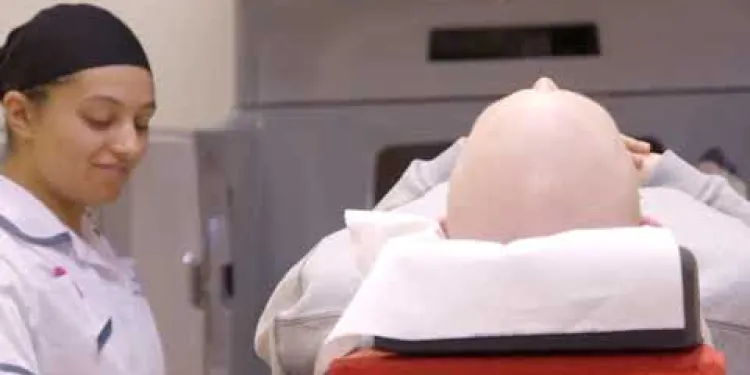
What is Radiotherapy, and its use in treatment for cancers?
Relevance: 11%
-
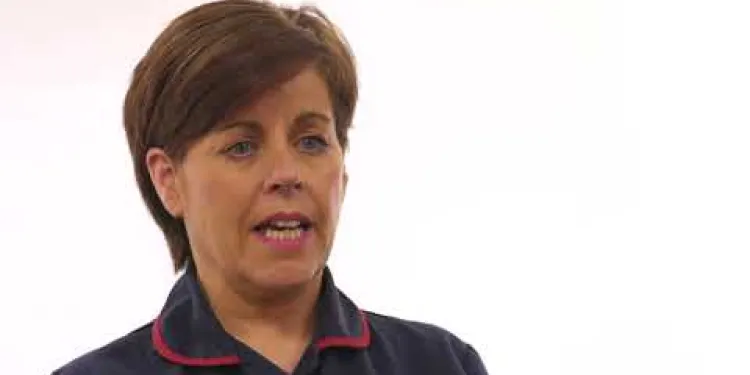
Ovarian Cancer
Relevance: 10%
-
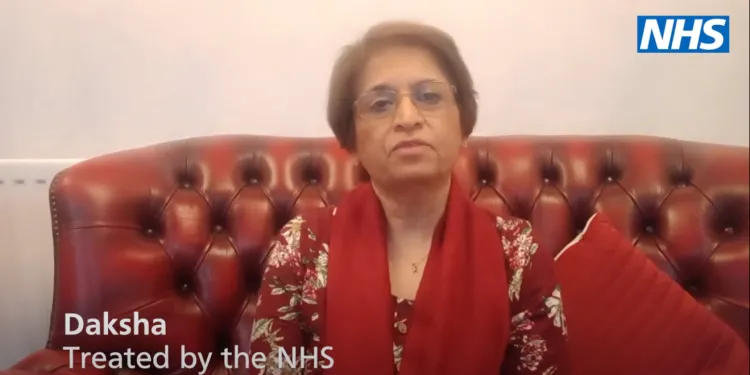
What is Cancer?
Relevance: 10%
-
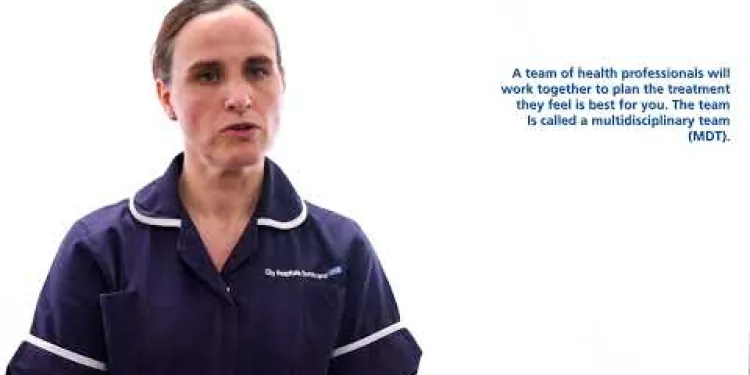
Mesothelioma
Relevance: 8%
-
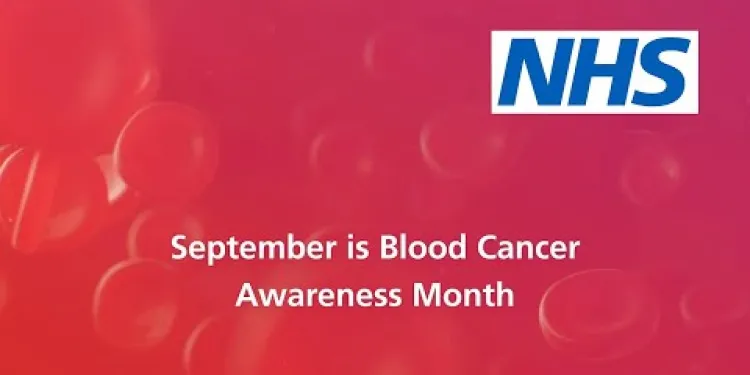
4 facts about blood cancer that you should know | NHS
Relevance: 8%
-
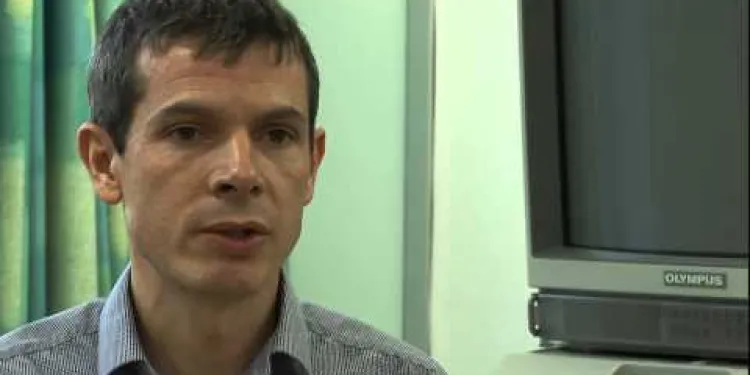
Bowel cancer - Symptoms and signs to look out for
Relevance: 8%
-
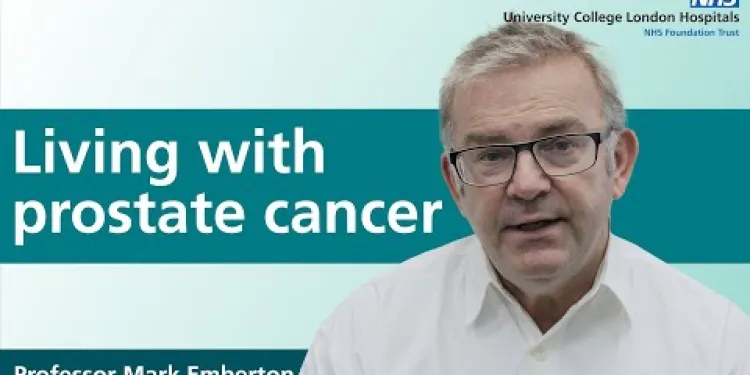
Living with prostate cancer
Relevance: 7%
-
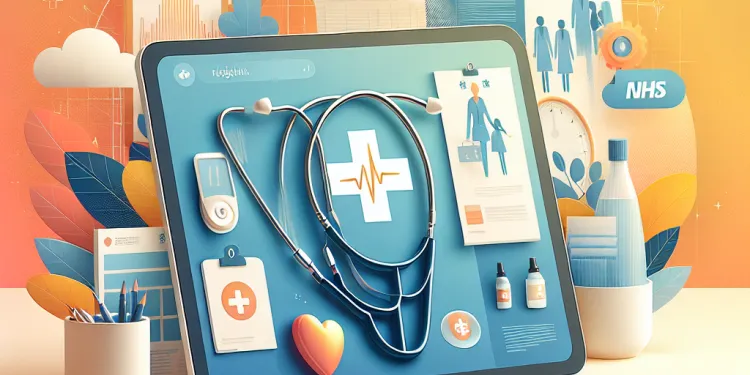
Breakthrough Cancer Treatment Shows Promise for NHS Patients
Relevance: 7%
-
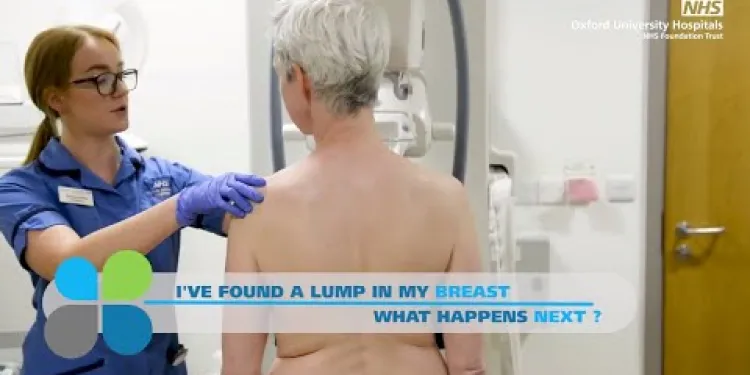
I've found a lump in my breast - What happens next? The breast diagnostic clinic
Relevance: 7%
-
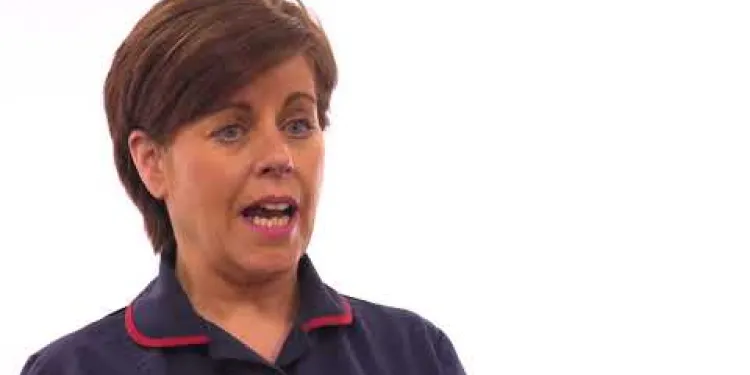
Endometrial Cancer
Relevance: 7%
-

What is Prostate Cancer?
Relevance: 7%
-
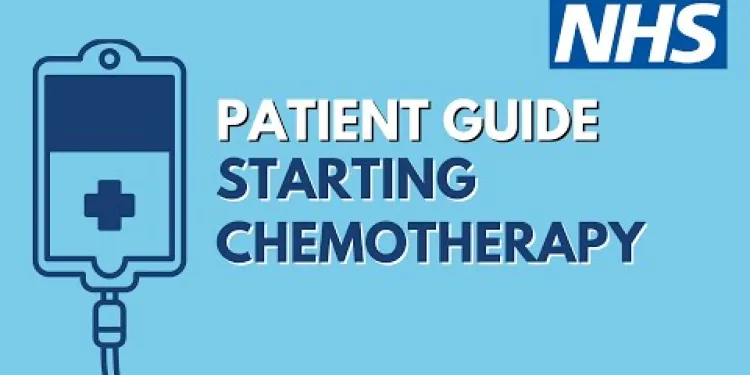
Starting Chemotherapy
Relevance: 6%
-
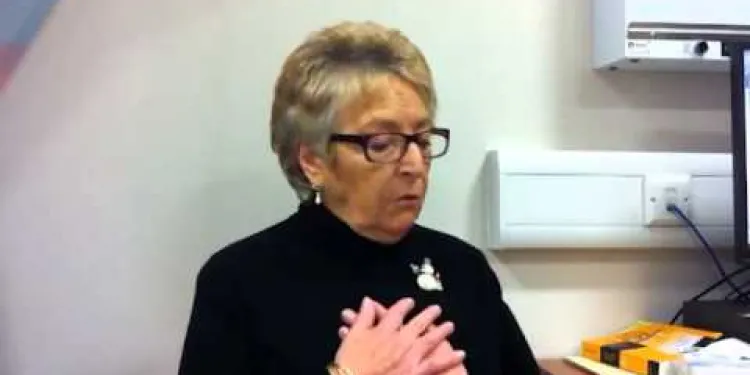
Neuroendocrine tumour patient video
Relevance: 5%
-
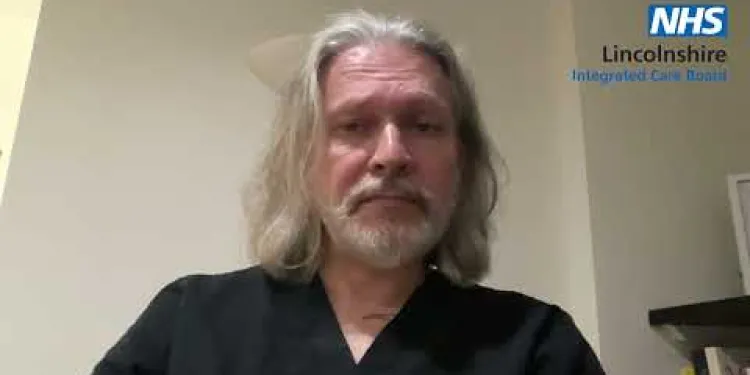
Getting to know your Testicles: Testicular Cancer Awareness with Dr James Howarth, Spilsby Surgery
Relevance: 5%
-
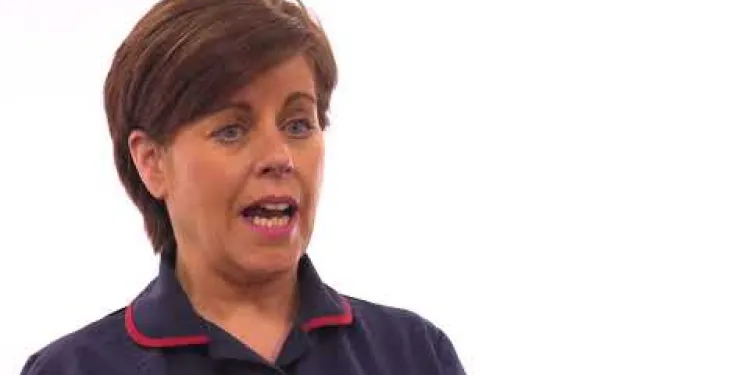
Endometrial Cancer
Relevance: 5%
-
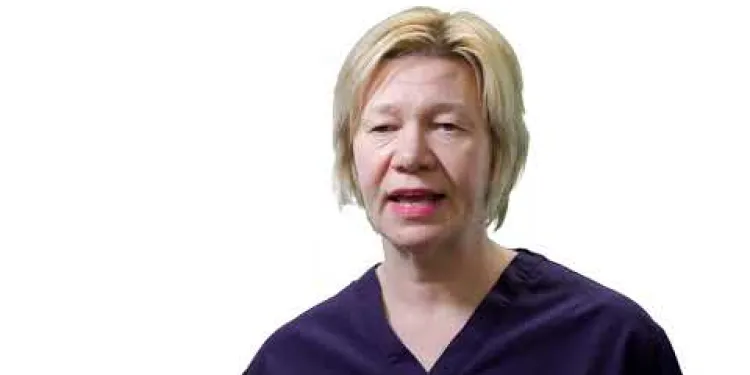
Head and Neck Cancer Diagnosis
Relevance: 5%
-
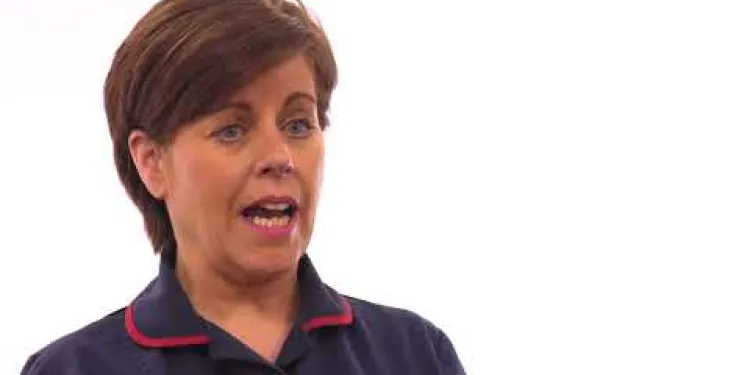
Endometrial Cancer
Relevance: 5%
-
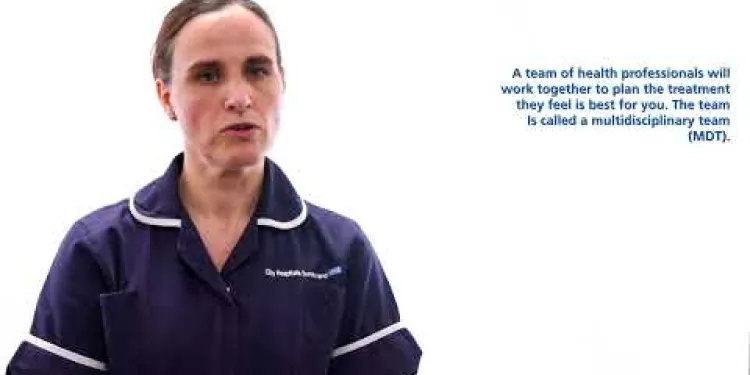
Mesothelioma
Relevance: 5%
-
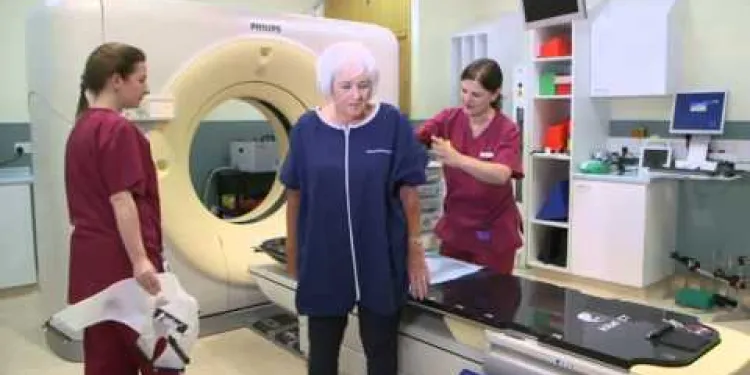
Radiotherapy to the Head and Neck: A Guide for patients and their carers
Relevance: 5%
-
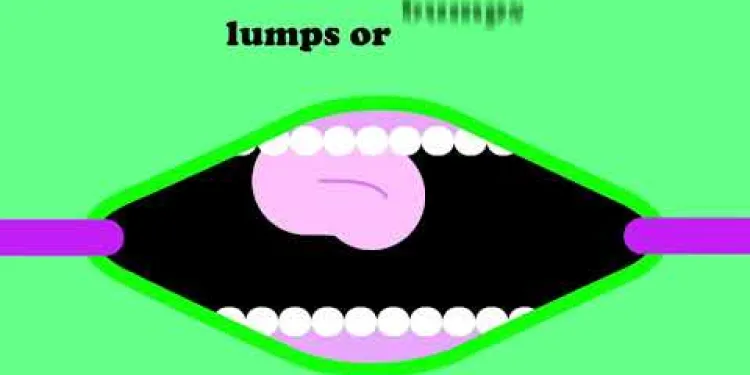
Mouth Cancer Infomercial
Relevance: 5%
-
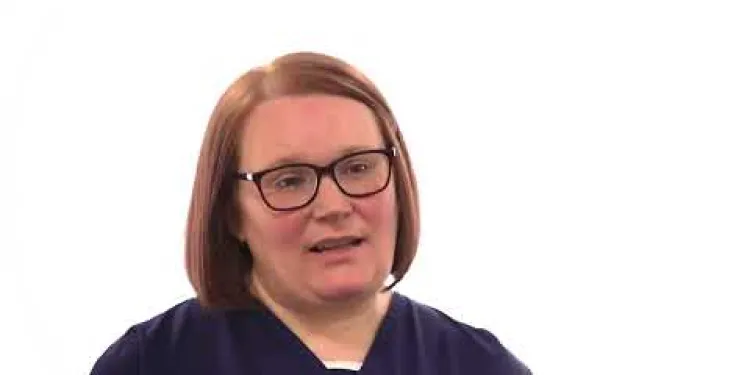
Vaginal Cancer
Relevance: 5%
-

Skin cancer education
Relevance: 5%
-
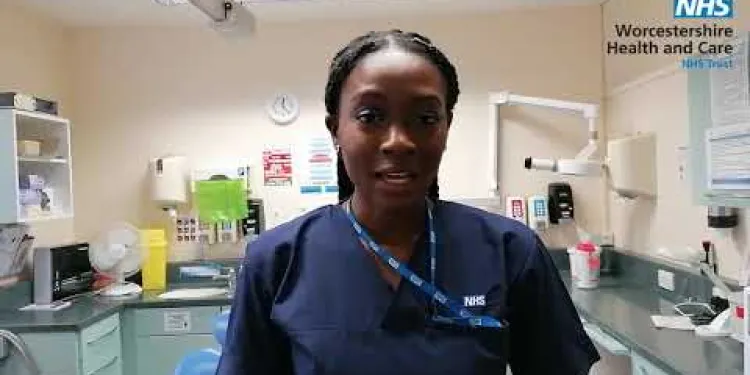
Mouth Cancer Awareness
Relevance: 5%
-
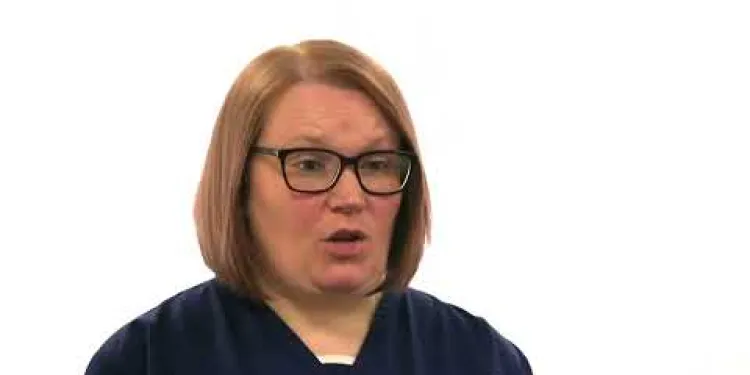
Vulval Cancer
Relevance: 5%
-
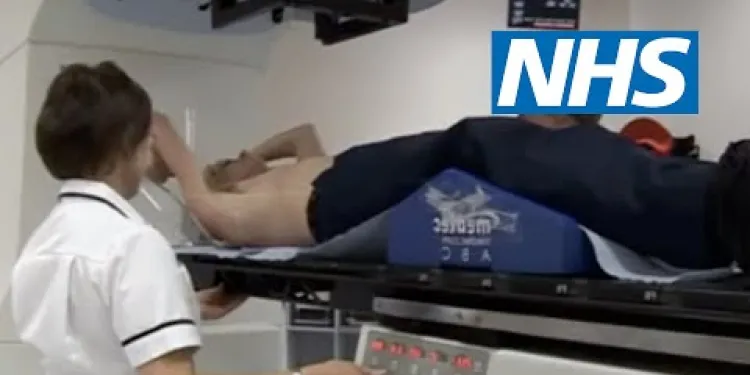
Cancer treatment: what happens during radiotherapy? | NHS
Relevance: 4%
-
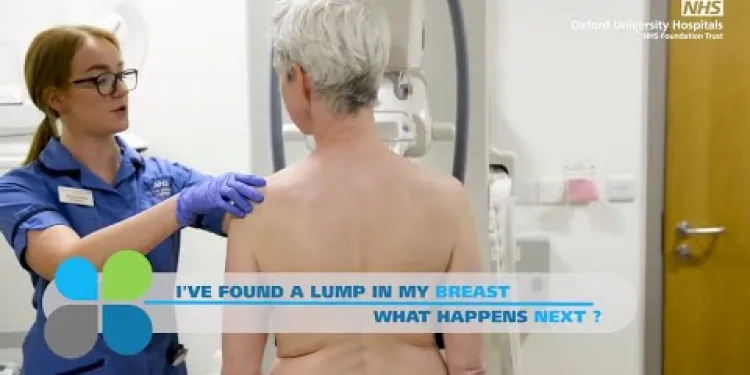
I've found a lump in my breast - What happens next? The breast diagnostic clinic
Relevance: 4%
-
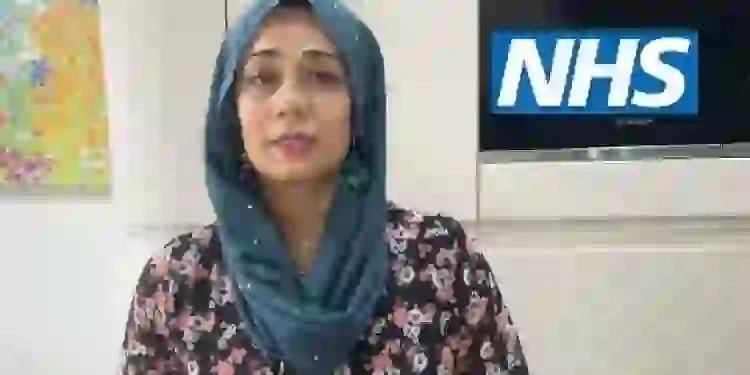
Get cancer symptoms checked by your GP | NHS
Relevance: 4%
-
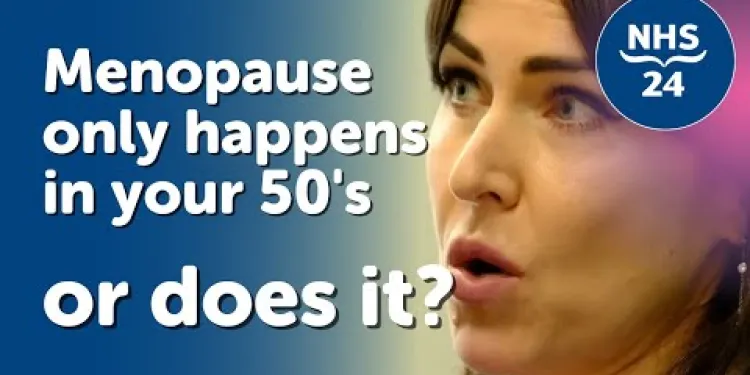
Does Menopause Only Happen in Your 50's? | NHS 24
Relevance: 4%
Chemotherapy: An Overview
What is Chemotherapy?
Chemotherapy is a type of cancer treatment that uses drugs to destroy cancer cells. It works by targeting and killing rapidly dividing cells, a characteristic of cancer cells. This treatment can be administered orally or intravenously, depending on the type and stage of cancer. Chemotherapy is often used in conjunction with other treatments such as surgery, radiation therapy, and immunotherapy.
Types of Chemotherapy
There are various types of chemotherapy, categorized based on how they interact with cancer cells. Alkylating agents work by directly damaging DNA, preventing cancer cells from reproducing. Antimetabolites interfere with DNA and RNA growth by substituting the normal building blocks of these molecules. Other types include anti-tumour antibiotics and topoisomerase inhibitors that prevent cancer cells from dividing and multiplying. Your oncology team will determine the most appropriate type and combination for your condition.
Side Effects of Chemotherapy
While chemotherapy targets rapidly dividing cells, it can also affect healthy cells, leading to side effects. Common side effects include nausea, fatigue, hair loss, and increased risk of infection. More severe but less common side effects can involve organ damage, such as heart or kidney problems. Patients in the United Kingdom should discuss potential side effects with their healthcare provider to fully understand what to expect and how to manage them.
Accessing Chemotherapy in the UK
In the United Kingdom, chemotherapy treatment is commonly available through the National Health Service (NHS). After a cancer diagnosis, an oncology team will develop a personalized treatment plan, which may include chemotherapy. Patients will typically receive treatment at a local hospital or specialized clinic. Some may also participate in clinical trials to access new and advanced chemo drugs under research.
Supporting Patients During Chemotherapy
Support systems are crucial for patients undergoing chemotherapy. In the UK, numerous resources exist to help patients and their families cope with treatment. The NHS provides support services, including counseling, financial aid, and patient support groups. Charities such as Macmillan Cancer Support and Cancer Research UK also offer extensive resources and community support.
Future of Chemotherapy
Ongoing research in the UK and worldwide aims to improve the effectiveness and reduce the side effects of chemotherapy. Innovative approaches like targeted therapy and personalized medicine are part of this future, offering hope for better outcomes with fewer side effects. Staying informed about advancements can provide patients and families with the latest treatment options available.
Chemotherapy: An Overview
What is Chemotherapy?
Chemotherapy is a way to treat cancer using special medicines. These medicines try to kill cancer cells. Cancer cells grow very fast, and chemo attacks these fast-growing cells. You can take chemo as a pill or through a needle in your arm. Chemo is often used with other treatments like surgery or special rays called radiation. It might also be used with new treatments to help your body fight cancer.
Types of Chemotherapy
There are different kinds of chemo medicines. Some attack the cancer cell's instructions (the DNA) to stop them from growing. Others mix up what the cancer needs to grow. There are also kinds that stop cancer cells from dividing and making more cells. Doctors will choose the best type of chemo for you.
Side Effects of Chemotherapy
Chemo can also affect healthy cells that grow fast, like hair and stomach cells, which can cause side effects. These might be feeling very tired, feeling sick, losing your hair, or getting infections more easily. Sometimes, chemo can affect important parts like your heart or kidneys, but that is less common. It is important to talk about any side effects with your doctor and ask how to make them feel better.
Accessing Chemotherapy in the UK
If you are in the United Kingdom, you can usually get chemo through the National Health Service (NHS). Your doctors will make a plan for your treatment after you find out you have cancer. You will probably get treatments at a nearby hospital or special clinic. Some people might join research studies to try new medicines.
Supporting Patients During Chemotherapy
Getting help is very important when you are having chemo. In the UK, there are people and places that can help you and your family. The NHS has services to talk to someone, help with money problems, and join support groups. There are also charities like Macmillan Cancer Support that have lots of information and help for people with cancer.
Future of Chemotherapy
Doctors and scientists are working hard to make chemo work better and have fewer side effects. New ideas like targeted therapy and personalized medicine are helping with this. These new treatments might give hope for better ways to help people with cancer. It is good to know what new treatments are available, so talking to your doctor can keep you informed.
Frequently Asked Questions
What is chemotherapy?
Chemotherapy is a type of cancer treatment that uses drugs to destroy cancer cells by stopping their ability to grow and divide.
How is chemotherapy administered?
Chemotherapy can be administered in several ways, including intravenously (IV), orally (in tablet form), through injections, or topically (as a cream).
What types of cancers can be treated with chemotherapy?
Chemotherapy can treat many types of cancer, including but not limited to breast cancer, lung cancer, leukaemia, lymphoma, and ovarian cancer.
What are the common side effects of chemotherapy?
Common side effects include fatigue, nausea, vomiting, hair loss, increased risk of infection, bleeding issues, and anaemia.
Can chemotherapy affect my fertility?
Chemotherapy can impact fertility in both men and women. It is important to discuss fertility preservation options with your doctor before starting treatment.
How long does a chemotherapy treatment last?
The duration of chemotherapy treatment varies depending on the type of cancer and the specific chemotherapy regimen prescribed. Treatments can range from a few weeks to several months.
Can I work during chemotherapy?
Many people continue to work during chemotherapy, though it depends on the individual's health, the side effects experienced, and the type of job they have.
Will I lose my hair during chemotherapy?
Hair loss is a common side effect of many chemotherapy drugs, though not all. It is usually temporary, and hair often starts to grow back after treatment ends.
Does chemotherapy hurt?
Receiving chemotherapy itself is not usually painful, but some side effects, like nausea, fatigue, and mouth sores, can cause discomfort.
How can I manage side effects of chemotherapy?
Side effects can be managed with medications, lifestyle changes, and complementary therapies. Discuss any side effects with your healthcare team for specific advice and support.
Can I eat normally during chemotherapy?
Your diet may need adjustments during chemotherapy. Eating small, frequent meals and staying hydrated can help manage side effects like nausea. Consult a dietitian for personalised advice.
What is the success rate of chemotherapy?
The success rate of chemotherapy varies widely depending on the type and stage of cancer, as well as individual patient factors. Your oncologist can provide more specific information based on your case.
Is chemotherapy covered by the NHS?
Yes, chemotherapy treatments are generally covered by the NHS in the United Kingdom.
Can I take other medications while on chemotherapy?
It is important to discuss all other medications, including supplements and over-the-counter drugs, with your healthcare team to avoid interactions with chemotherapy drugs.
How often will I need to have chemotherapy sessions?
Chemotherapy schedules can vary. Some patients may receive treatment daily, weekly, or monthly, with breaks in between to allow the body to recover. Your oncologist will create a schedule tailored to your treatment plan.
What is chemotherapy?
Chemotherapy is a kind of medicine. It helps fight cancer. Cancer is when bad cells grow in the body.
Doctors give chemotherapy to stop these bad cells from growing. It tries to make the person feel better.
Chemotherapy can make people feel tired or sick. But it is very important, and doctors help people feel as good as they can.
If you find reading hard, ask someone to read with you. You can also use audio books or videos to learn more.
Chemotherapy is a way to treat cancer. It uses special medicines to kill cancer cells. These medicines stop the cancer cells from growing and spreading.
How do you get chemotherapy?
Chemotherapy is a treatment for cancer.
Doctors give you this medicine to help fight cancer. There are different ways to get chemotherapy:
- Through a needle in your arm (like a shot).
- As a pill that you swallow.
- Sometimes, it is put into your body in other ways, like a cream on your skin.
It's important to talk to your doctor or nurse. They can explain how you will get your treatment and answer your questions.
You can use tools to help, like:
- Writing down any questions you have.
- Bringing a friend or family member to appointments.
- Using a calendar to remember treatment days.
Chemotherapy is a way to treat cancer. It can be given in different ways. You might get it:
- Through a drip into your vein, which is called IV.
- As a pill or tablet that you swallow.
- As an injection, like a shot.
- As a cream you put on your skin.
If you find reading hard, try using tools like audiobooks or text-to-speech apps. They can read the text out loud for you.
What cancers can chemotherapy treat?
Chemotherapy is a strong medicine that helps fight cancer. It can help with many types of cancer. Here are some cancers that chemotherapy can treat:
- Breast cancer
- Lung cancer
- Blood cancer like leukemia
- Bowel cancer
If you or someone you know is getting chemotherapy, it can be helpful to talk to a doctor or nurse. They can answer questions and offer support. It might also help to keep a notebook of questions and answers. This can make the treatment easier to understand.
Chemotherapy is a treatment for cancer. It can help with different kinds of cancer. These include breast cancer, lung cancer, leukaemia, lymphoma, and ovarian cancer.
If reading is hard, you could try these tips:
- Read slowly and take breaks.
- Use a ruler or your finger to follow along the lines.
- Ask someone to read it with you.
What are the common side effects of chemotherapy?
When people take medicine for cancer called chemotherapy, they can feel different kinds of sick. Here are some things that might happen:
- Feel very tired.
- Feel sick in the tummy and want to throw up.
- Lose hair from their head.
- Have sore spots in their mouth.
- Feel like they don't want to eat.
If you or someone you know is taking chemotherapy and feels sick, tell a doctor or nurse. They can help make it better.
It can be good to talk to someone about how you feel. You can also write down when you feel sick. This can help the doctor understand and help you more.
These are some things that might happen:
- You might feel very tired.
- You could feel sick in your tummy.
- You might throw up.
- Your hair could fall out.
- You might get sick more easily because your body can't fight germs as well.
- You might have more bleeding, like nosebleeds or bruises.
- You could feel weak because there's less healthy blood in your body.
Can chemotherapy affect my ability to have children?
Chemotherapy is medicine that helps treat cancer.
Sometimes, chemotherapy can make it harder to have children later. This means it might affect your fertility.
If you are worried, talk to your doctor. They can help you understand your options.
Tools that can help:
- Ask your doctor to explain things in simple words.
- Bring a friend or family member with you to medical appointments.
- Write down your questions before you see the doctor.
Chemotherapy can affect having children in both men and women. Talk to your doctor about ways to keep your fertility before starting treatment.
How long does chemotherapy last?
Chemotherapy treatment, or chemo, is medicine to help fight cancer.
Chemo can last a different amount of time for each person.
Sometimes, it is just a few weeks. Other times, it can be a few months.
Your doctor will tell you how long you need chemo.
If you have questions, ask your doctor. They are there to help you.
To understand better, you can use a calendar. This helps keep track of your appointments.
Chemotherapy is a medicine used to treat cancer.
How long someone needs chemotherapy can be different for each person. It depends on what kind of cancer they have.
Some people might have treatment for a few weeks. Others might need it for many months.
If it's hard to understand, you can ask a doctor or nurse to explain it in simple words.
Can I work while having chemo?
Lots of people keep working while getting chemo treatment. But it depends on how they feel, the side effects they have, and what kind of job they do.
Here are some things that might help:
- Talk to your doctor about how you feel and what you can do.
- Tell your boss or teacher about your treatment so they can help you.
- Take breaks when you feel tired.
- Ask for help from family and friends.
Will chemotherapy make my hair fall out?
When you get chemotherapy, some people lose their hair. But not everyone does. Hair loss can be different for each person.
If you have questions, it is good to talk to your doctor. They can help you understand what might happen.
Some people use hats, scarves, or wigs to feel better if they lose their hair.
Sometimes, people lose their hair when they take some cancer medicine. But not everyone will. The hair usually comes back after the treatment stops.
Does chemotherapy hurt?
Chemotherapy is a medicine to fight cancer. Sometimes, it can make you feel unwell.
Here are some things you may feel:
- Tired
- Sick in the tummy
- Hair loss
It is important to talk to your doctor or nurse. They can help you feel better. You can also bring a friend or family member to support you.
Getting chemotherapy doesn't usually hurt. But it can have some side effects. These might make you feel sick, very tired, or give you mouth sores. These can be uncomfortable.
How can I handle the side effects of chemotherapy?
Chemotherapy is a medicine that helps fight cancer. It might cause some problems called side effects.
Here are some ideas to feel better:
- Talk to your doctor or nurse. They can help with medicine or tips.
- Rest a lot. Your body needs time to get strong again.
- Eat healthy foods. They give your body energy.
- Drink water. It helps you stay healthy.
- Tell family or friends how you feel. They can support you.
Using a diary or chart can help keep track of how you feel each day. Share this with your doctor to get more help.
You can manage side effects by using medicine, changing how you live, and trying other helpful therapies. Talk to your doctor or nurse about side effects so they can give you advice and help.
Can I eat like usual during chemotherapy?
Chemotherapy is a treatment for cancer. It uses strong medicines to fight cancer cells. Sometimes, these medicines can make you feel unwell.
Here are some tips to help you eat better during chemotherapy:
- Try to eat small meals throughout the day.
- Drink lots of water to stay hydrated.
- If some foods make you feel sick, try different foods.
- Ask your nurse or doctor for advice on what to eat.
It's important to listen to your body and eat what feels best. You can also get help from a dietitian or use special tools like meal planners to help with your food choices.
When you have chemotherapy, you might need to change what you eat. Eating little meals more often and drinking lots of water can help if you feel sick. It is a good idea to talk to a food expert called a dietitian for help just for you.
How often does chemotherapy work?
Some people get better with chemotherapy. Others may not. It depends on the type of cancer and the person.
It is good to talk to a doctor to understand more.
If you need help reading or understanding, you can ask someone to read with you or use tools like audiobooks.
Chemotherapy is a treatment for cancer. It works differently for each person. How well it works can depend on:
- The type of cancer you have.
- How much the cancer has spread.
- Your own health.
Your cancer doctor, called an oncologist, can tell you more about how chemotherapy might work for you.
If you need help understanding, you can:
- Ask your doctor to explain things in a simple way.
- Use pictures or drawings to make it clearer.
- Bring a friend or family member to help remember what the doctor says.
Does the NHS pay for chemotherapy?
The NHS usually pays for chemotherapy. This means if you need this treatment for cancer, you might not have to pay. It is important to talk to your doctor about your treatment to know more.
If you find reading hard, you can ask someone to read with you or use a reading app to help.
Yes, the NHS in the UK usually pays for chemotherapy treatments.
Can I take other medicines when having chemotherapy?
Chemotherapy is strong medicine to treat cancer. If you are taking chemotherapy, ask your doctor or nurse before taking other medicines. This includes pills, vitamins, and herbs.
Here are some things that can help you:
- Make a list of all the medicines you take.
- Show this list to your doctor or nurse.
- Always ask if it's okay to start a new medicine.
- Use a notebook or phone to keep track of your medicines and how you feel.
Talk to your doctor about all the medicines you take. This means pills, vitamins, and even things you buy without a prescription. This helps make sure they don't mix badly with your chemotherapy medicine.
How many times do I need to have chemo?
Chemo is medicine to help treat cancer. You might need many sessions.
Ask your doctor or nurse how many times you need chemo. They will help you make a plan.
If you do not understand, ask someone to explain. You can bring a friend or family member to help remember what the doctor says.
Chemotherapy is a type of medicine to fight cancer. People get chemotherapy at different times. Some get it every day, some every week, and some every month. There are breaks in between to help the body get better. Your doctor will make a plan just for you.
If reading is hard, try using tools like audiobooks or text-to-speech apps. You can also ask someone to read aloud with you.
Useful Links
Useful links from: Starting Chemotherapy
- NHS - Mental Health Services Information on accessing mental health services through the NHS, including treatment options and where to find support.
- Mind - Mental Health Charity A UK charity providing advice and support to empower anyone experiencing a mental health problem.
- Rethink Mental Illness Provides support and information for people affected by mental health issues, including carers and families.
- Samaritans Charity offering emotional support to anyone in distress or struggling to cope.
Useful links from: Having chemotherapy and other treatments in the Day Treatment Unit
- NHS - Chemotherapy Comprehensive guide on chemotherapy, including its purpose, what happens during the treatment, and potential side effects.
- Macmillan Cancer Support - Chemotherapy Detailed information from Macmillan Cancer Support about chemotherapy, including preparation, the process, and aftercare.
- Cancer Research UK - Chemotherapy Resource from Cancer Research UK explaining what chemotherapy is, types of chemotherapy drugs, and side effects management.
- NHS - Cancer Treatment: Day Treatment Unit NHS guide to cancer treatment options, including what to expect when receiving treatments in a Day Treatment Unit.
Useful links from: Pre chemotherapy Information Video
- NHS - Chemotherapy This NHS page provides comprehensive information about chemotherapy, including what it is, how it is performed, and what to expect during treatment.
- Macmillan Cancer Support - Chemotherapy Macmillan Cancer Support offers detailed information on chemotherapy, including preparation tips, what happens during treatment, and potential side effects.
- Cancer Research UK - Chemotherapy This page by Cancer Research UK provides an overview of chemotherapy, covering topics such as how chemotherapy works, types of chemotherapy, and the treatment process.
- Marie Curie - Chemotherapy Marie Curie offers guidance on chemotherapy, aimed at helping patients understand their treatment, manage side effects, and find additional support.
Useful links from: Chemotherapy - the patient journey
- NHS: Chemotherapy Provides comprehensive information about chemotherapy, including how it works, what to expect, and side effects.
- Macmillan Cancer Support: Chemotherapy Offers detailed guidance on chemotherapy treatment, managing side effects, and patient experiences.
- Cancer Research UK: Chemotherapy Provides an overview of chemotherapy and its uses, as well as tips for coping with the treatment.
- Marie Curie: Chemotherapy Information Gives insights into chemotherapy as part of cancer treatment, its process, and how to get support.
Useful links from: Information for all cancer patients receiving Chemotherapy or Targeted Therapy at HDFT.
- NHS - Chemotherapy Provides comprehensive information on what chemotherapy is, how it's administered, potential side effects, and tips for managing symptoms.
- NHS - Targeted Cancer Drugs Offers detailed information on targeted cancer therapies, how they work, who might be eligible, and possible side effects.
- Cancer Research UK - Chemotherapy Explains the chemotherapy process, including preparation, types of chemotherapy, side effects, and coping strategies.
- Macmillan Cancer Support - Chemotherapy Provides an extensive overview of chemotherapy treatments, managing side effects, emotional support, and practical advice for patients and caregivers.
Useful links from: Chemotherapy - The Queen's Centre
- Chemotherapy Information - NHS Comprehensive resource from the NHS detailing what chemotherapy is, how it works, possible side effects, and preparation for treatment.
- Cancer Research UK - Chemotherapy Detailed guide by Cancer Research UK covering the use of chemotherapy in cancer treatment, how it is administered, and managing side effects.
- Macmillan Cancer Support - Chemotherapy Macmillan Cancer Support offers extensive information on chemotherapy, including practical advice, emotional support, and FAQs.
- Chemotherapy - Marie Curie Marie Curie provides essential information on chemotherapy, focusing on the support available for those undergoing treatment and their families.
- Ergsy carfully checks the information in the videos we provide here.
- Videos shown by Youtube after a video has completed, have NOT been reviewed by ERGSY.
- To view, click the arrow in centre of video.
- Most of the videos you find here will have subtitles and/or closed captions available.
- You may need to turn these on, and choose your preferred language.
- Go to the video you'd like to watch.
- If closed captions (CC) are available, settings will be visible on the bottom right of the video player.
- To turn on Captions, click settings .
- To turn off Captions, click settings again.
More Items From Ergsy search
-

Chemotherapy
Relevance: 100%
-

Pre chemotherapy Information Video
Relevance: 97%
-

Chemotherapy - the patient journey
Relevance: 91%
-

Introduction to Chemotherapy, NHS Highland
Relevance: 86%
-

Chemotherapy - The Queen's Centre
Relevance: 79%
-

Having chemotherapy and other treatments in the Day Treatment Unit
Relevance: 63%
-

Information for all cancer patients receiving Chemotherapy or Targeted Therapy at HDFT.
Relevance: 35%
-

World Pancreatic Cancer Day - No Time to Wait
Relevance: 23%
-

Treating prostate cancer
Relevance: 20%
-

Breast cancer: testing and treatment | NHS
Relevance: 14%
-

Learn about bowel cancer (British Sign Language version)
Relevance: 14%
-

An Interview With JC About His Leukemia And His Leukemia Treatment
Relevance: 12%
-

What is Radiotherapy, and its use in treatment for cancers?
Relevance: 11%
-

Ovarian Cancer
Relevance: 10%
-

What is Cancer?
Relevance: 10%
-

Mesothelioma
Relevance: 8%
-

4 facts about blood cancer that you should know | NHS
Relevance: 8%
-

Bowel cancer - Symptoms and signs to look out for
Relevance: 8%
-

Living with prostate cancer
Relevance: 7%
-

Breakthrough Cancer Treatment Shows Promise for NHS Patients
Relevance: 7%
-

I've found a lump in my breast - What happens next? The breast diagnostic clinic
Relevance: 7%
-

Endometrial Cancer
Relevance: 7%
-

What is Prostate Cancer?
Relevance: 7%
-

Starting Chemotherapy
Relevance: 6%
-

Neuroendocrine tumour patient video
Relevance: 5%
-

Getting to know your Testicles: Testicular Cancer Awareness with Dr James Howarth, Spilsby Surgery
Relevance: 5%
-

Endometrial Cancer
Relevance: 5%
-

Head and Neck Cancer Diagnosis
Relevance: 5%
-

Endometrial Cancer
Relevance: 5%
-

Mesothelioma
Relevance: 5%
-

Radiotherapy to the Head and Neck: A Guide for patients and their carers
Relevance: 5%
-

Mouth Cancer Infomercial
Relevance: 5%
-

Vaginal Cancer
Relevance: 5%
-

Skin cancer education
Relevance: 5%
-

Mouth Cancer Awareness
Relevance: 5%
-

Vulval Cancer
Relevance: 5%
-

Cancer treatment: what happens during radiotherapy? | NHS
Relevance: 4%
-

I've found a lump in my breast - What happens next? The breast diagnostic clinic
Relevance: 4%
-

Get cancer symptoms checked by your GP | NHS
Relevance: 4%
-

Does Menopause Only Happen in Your 50's? | NHS 24
Relevance: 4%